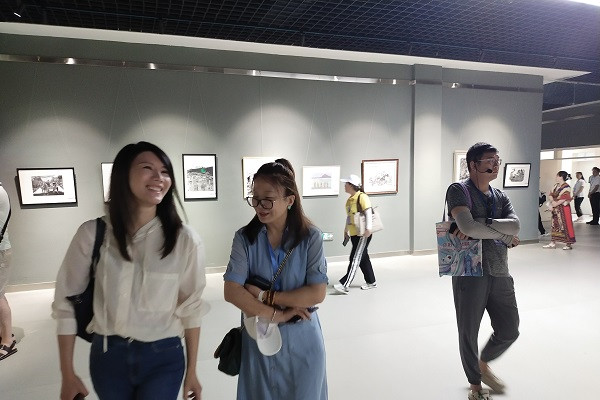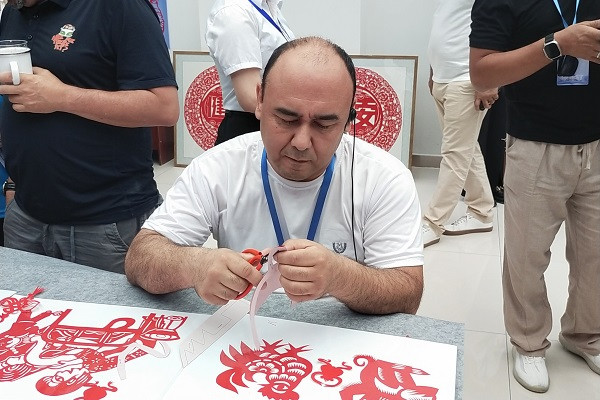Tashkent, Uzbekistan (UzDaily.com) -- As part of the visit to the city of Karamay, Xinjiang Uygur Autonomous Region (Northwest China), we visited the Museum of Applied Arts of China.
First of all, we were given information about the museum and the history of its creation. The paintings, painted by skilled artists, captivated visitors with their high skill. When you look at the paintings, you will have the feeling that you are involuntarily falling into the history of the Chinese state.
We became acquainted with the transformations taking place in the country through paintings depicting each era. In addition, we were greatly impressed by the paintings on the theme of nature in a special large hall...

After a tour of the museum, we were invited into the large hall. This is a unique hands-on workshop that provides museum visitors with both theoretical and practical information about the traditional Chinese art of Jianzhi. We sat down at a table specially equipped with everything we needed and got to work...
Until now, I have seen the art of "Jianzhi" on the Internet and on television. It seemed to me that the figures drawn on regular paper were easy to cut out with scissors. But in practice, Jianzhi is also a great art.
“Jianzhi” is a traditional Chinese art - a technique of cutting out various figures and entire paintings from paper. The jianzhi technique involves cutting out figures strictly from a single sheet of paper. Gluing and assembling parts are excluded.

It is not surprising that the tradition of the art of paper cutting belongs to Chinese civilization, because the date of birth of paper is considered to be 105 AD, when the advisor to the Chinese Emperor Cai Lun generalized and improved the existing methods of making paper-like materials.
We picked up scissors, cut out different figures from colored paper and, with the help of the traditional Chinese art of Jianzhi, plunged into the past...
We are grateful to the Chinese organizers for the lifelong experience we had at the China Museum of Applied Arts.